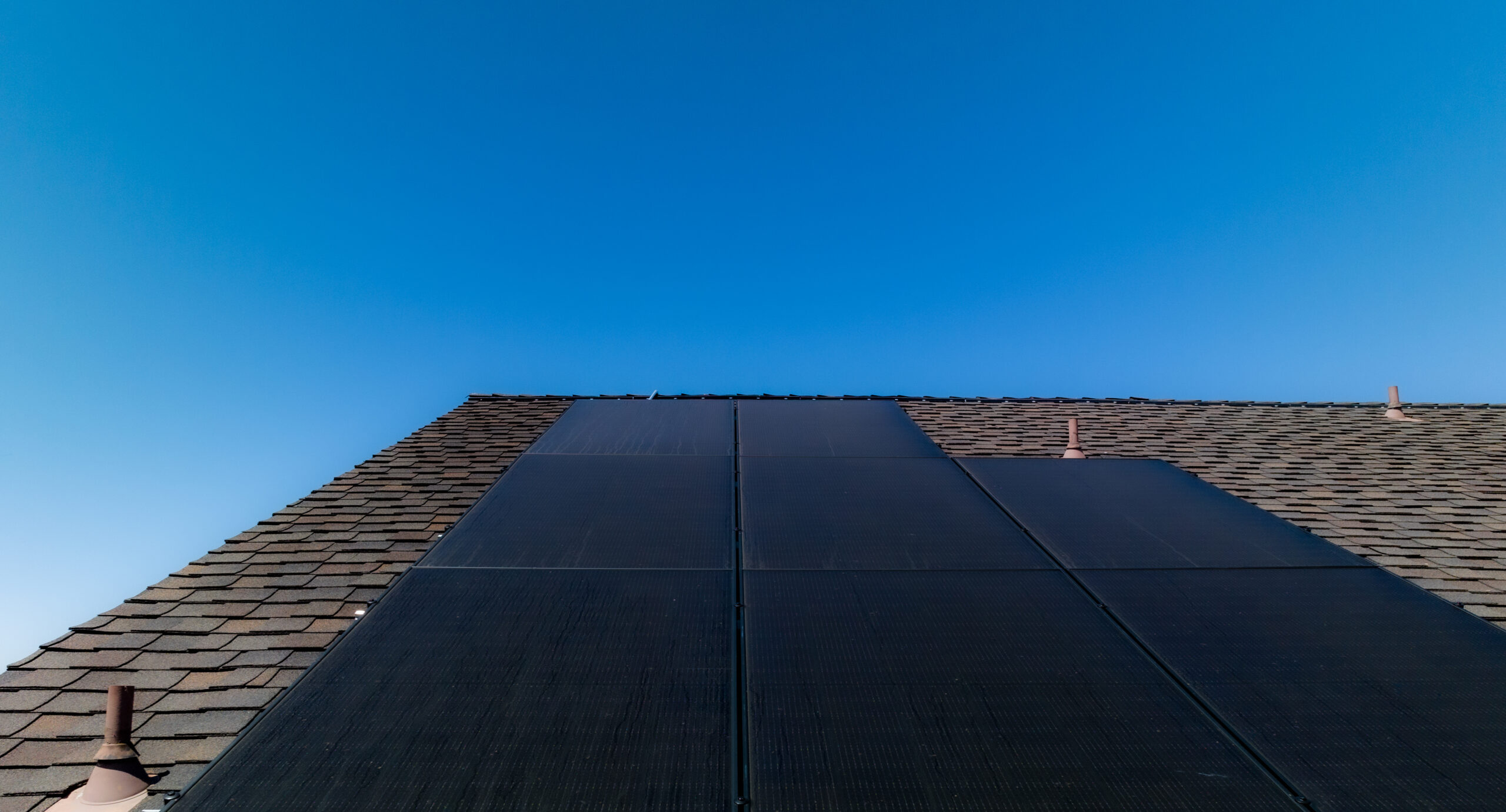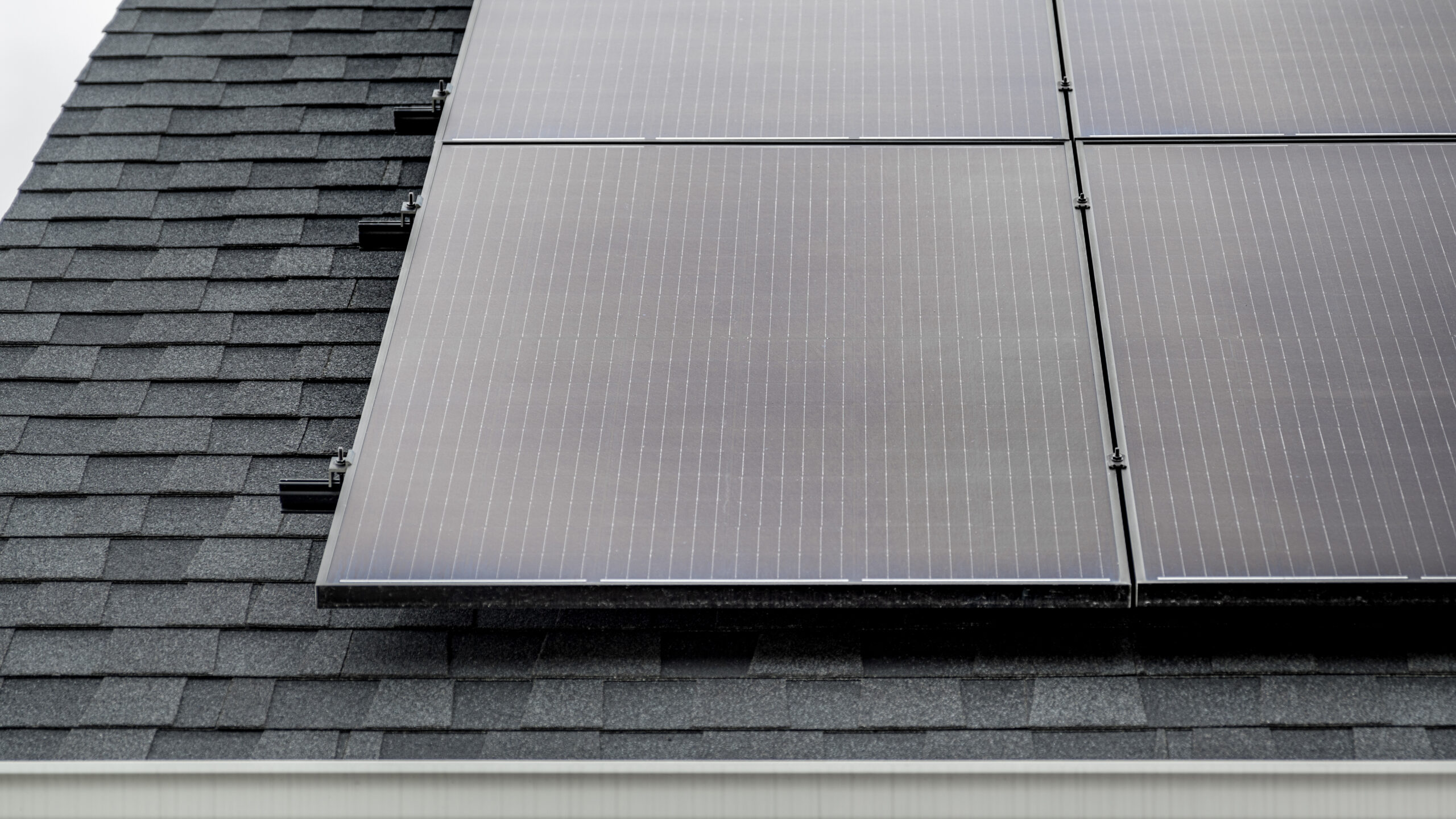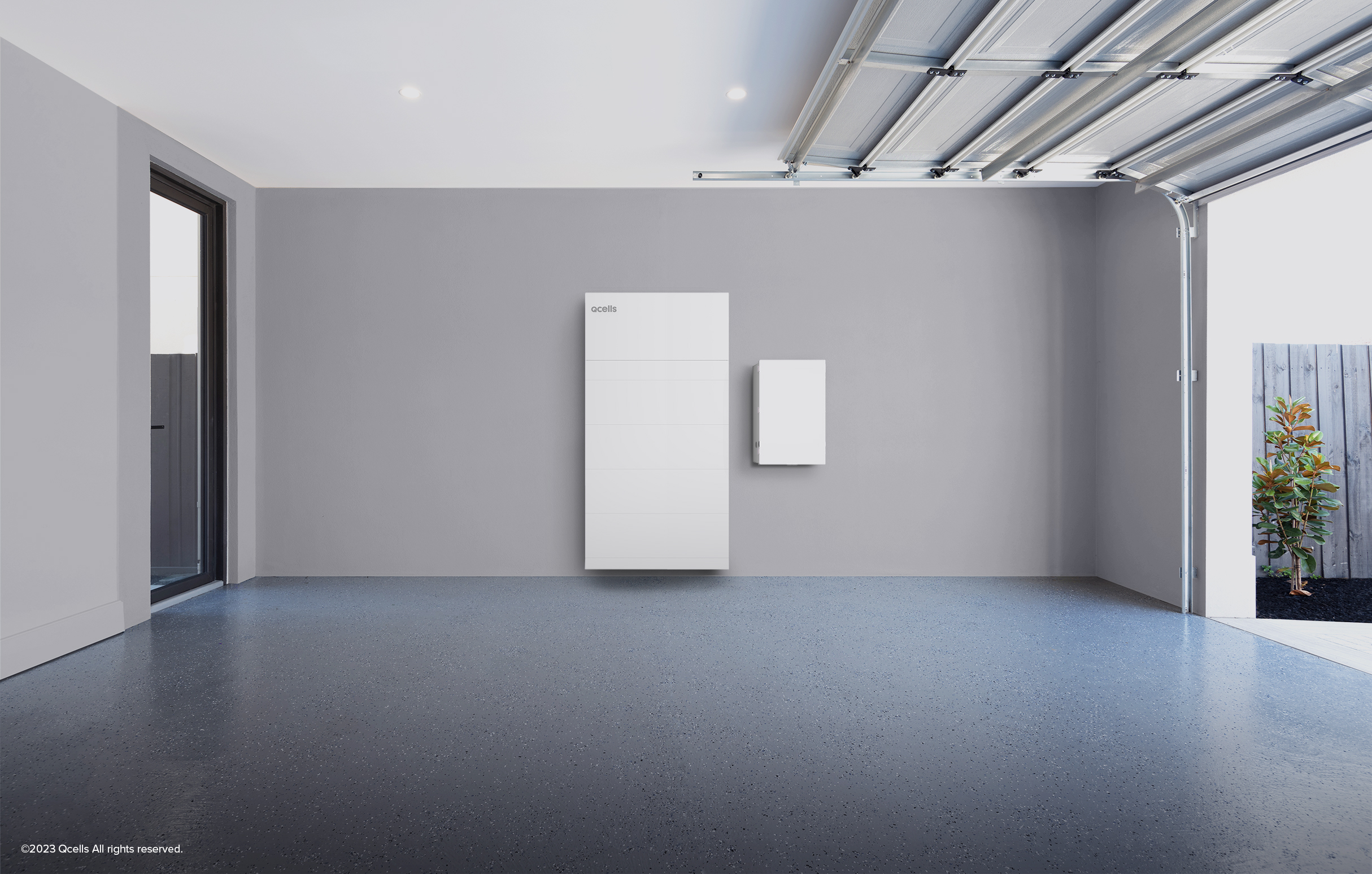If you are considering installing a solar system, it is important to weigh up the solar energy pros and cons before making an investment. The pros of solar energy include the fact that it is a sustainable way of generating electricity, reducing carbon footprints and assisting countries in reaching their net zero targets. Other solar energy pros include its affordability and low maintenance, its ability to increase a property’s value, and the energy independence it provides.
There are not many cons of solar energy, but one criticism is that solar does not produce energy during times of darkness, and is less efficient in countries with not much sunshine. Solar can be paired with flexible home battery storage systems, enabling solar system owners to store excess energy generated when the sun is shining, to be consumed at night. Another disadvantage of solar energy is that it can require a significant amount of land. However, community solar projects are increasingly popular – allowing end-users to benefit from solar energy in locations where space is constrained.
Advantages of Solar Energy
The advantages of solar energy have been obvious for some time. As more solar energy is installed globally, the world becomes less reliant on polluting fossil fuels, and individual nations, businesses and homeowners benefit from lower carbon footprints and greater energy independence. Solar energy’s advantages are numerous: let’s look at the advantages of solar energy and how more solar benefits everyone.
Renewable Energy
Solar electricity is a leading driver of renewable energy. Solar technology has been finessed and improved over many decades, and in the past few years solar energy has become the most popular form of renewable energy, attracting more global investment than any other form of electricity generation. Solar energy is universal – the whole world can harness the power of the sun, and the process of manufacturing solar panels is becoming much more sustainable each day, making solar energy the cleanest form of renewable energy.
More Affordable Than Ever
Solar energy is more affordable than ever. Since 2015, the cost of a solar system has fallen by approximately 22% [1], costs for solar energy continue to fall. Indeed, the levelized cost of electricity (LCOE) for solar is the most competitive in the world in many regions, meaning it is the cheapest source of power generation. Some states also provide solar investment tax credits and rebates to homeowners who install solar panels, and there are numerous attractive financial packages available to help make solar more affordable – from no-money-down leasing options to solar loans.
Reduce Electricity Bill
A solar panel investment can help you to reduce your electricity bill. Solar electricity generated by your solar panels will likely cover most, if not all, of your energy needs, dependent upon the size of your solar system and your typical energy consumption. For businesses and homes that have a large roof space to cover, a larger solar energy system can be sized to meet a good chunk of your electricity bill, which is a huge benefit for businesses that have high energy consumption.
In addition to a reduced electricity bill, any surplus solar electricity generated but not consumed can be fed into the grid, for which you can – dependent upon local policy and incentives – receive payments or energy credits from the utility provider. Surplus solar electricity may also be stored in battery storage systems to be used during non production hours.
Long-Term Savings
While the size and component costs of a solar energy system can vary on an individual basis, the overall long-term savings offered by solar is unarguable. Typically, investors in a solar system break even within six-to-ten years, and with solar panels performing well beyond 25 years, homeowners reap the cost benefits of long-term savings for many years. In a climate of volatile electricity prices, solar energy also offers stability and peace of mind – the power from the sun does not fluctuate or react to global shocks, making solar energy a good insurance against rising electricity prices.
While not strictly a long-term saving, a solar system on the home can also increase a property’s value, making it a more attractive proposition for homebuyers.
Generate Electricity in any Climate
It does not have to be sunny weather for a solar system to work – just daylight. This means that solar panels can generate electricity in any climate. Yes, they will be more efficient in locations with higher solar irradiation, but solar electricity will still be generated even in cooler and cloudier locations. Modern solar panels, such as those developed by Qcells, are also designed to perform better in low-light conditions, meaning that even locations in very northern or southern latitudes can reap the benefits of solar.
Environmentally Friendly
One of solar energy’s main attractions for end-users is that it is environmentally friendly. Solar power is a leading renewable energy source. It produces no pollutants or emissions, and is a technology, not a fuel – therefore, its source is infinite and its performance is low maintenance. All that solar panels produce is clean energy.
The manufacture of solar panels is also increasingly environmentally friendly. Many suppliers, including Qcells, offer low-carbon solar modules, which are made using raw materials manufactured in more eco-conscious ways. And because solar panels typically last for more than 25 years, the long-term carbon footprint of solar is way lower than any other form of electricity.
Remote Monitoring Access
Modern solar systems can be monitored by remote access. This means that homeowners who install solar can use an app installed on their smart device that offers user-friendly monitoring of the solar system’s performance. These Energy Monitoring Systems (including Qcells’ own EMS, Q.OMMAND) can be used for analytical and even control purposes when paired with a smart battery, enabling homeowners to better manage their consumption and storage patterns.
Low Maintenance
Solar energy is the source of renewable energy with the lowest maintenance required. Once installed, solar panels require very little maintenance. If solar panels are kept clean and free of debris, they will perform with optimal efficiency for many years. Environmental factors can of course impact a solar panel’s performance, but cleaning solar panels is a simple process that should be conducted periodically.
Energy Independence
Solar panels offer home and business owners the perfect opportunity for energy independence. When paired with a storage system, a solar-powered building has the potential to function entirely off-grid, shielding end-users from grid-related issues, including power outages and electricity price fluctuations. A solar system offers insurance against price shocks and other interruptions associated with the grid, and with remote access monitoring offered by a mobile app, end users of solar systems – be they homeowners, businesses, or even community solar participants – can enjoy greater energy independence.
Job Creation
Globally, solar power is a real driver in job creation, accounting for 4.3 million jobs in 2021 – more than one-third of all renewable energy jobs. In the USA, solar is a dynamic employer, with jobs in solar growing by 3.5% in 2022, surpassing 250,000 people employed. From solar panel manufacturing through to solar installation, maintenance and R&D, job creation is one of solar power’s major advantages.
Disadvantages of Solar Energy
Despite being the most transformative, cleanest and increasingly popular energy source in the world, there are disadvantages of solar energy that need to be taken into account if you are considering installing solar.
Solar Panels Don’t Work at Night
It is true that solar panels don’t work at night. Solar energy is sunlight dependent, meaning that it does not have to be sunny for solar to work, but daytime at least. And while private homes tend to use less electricity at night, many industries do, meaning solar cannot alone account for the world’s entire energy needs. However, solar is a perfect partner for energy storage, meaning that batteries can be charged with solar energy during the day, and then the battery can power a home or commercial premises during times of darkness. Solar is also a flexible addition to the electricity grid, and can be consumed in real-time during the day, leaving other sources to take over during other times.
Solar Panels Need Daylight
Solar panels need daylight, but they still perform in the shade, albeit at a lower efficiency. If a solar system is installed on a rooftop that is partly shaded for some parts of the day, it can benefit from the addition of microinverters and solar power optimizers, which can help maximize a solar panel’s output even if shaded.
Land Use and Space Concerns
Large-scale solar projects require big tracts of land, which can lead to opposition from people who live nearby or environmentalists concerned about the use of that land. Modern installation techniques are improving to ensure that biodiversity concerns are taken into account when installing utility-scale solar, helping to mitigate land use concerns and reduce the impact on local wildlife and populations. The negative impact of solar parks can also be reduced by installing on low-quality land such as brownfield sites, and near to existing transportation and transmission corridors. Community solar projects also help encourage local residents to look favorably on solar when they can benefit from the clean energy produced.
There are space constraints to consider, too. Solar power density is lower than fossil fuels, meaning that a solar panel’s watts per square meter is higher. Despite modern solar panels improving their power density, solar energy still requires a lot of unobstructed space – either on a rooftop or the ground – in order to perform optimally.
High Initial Cost
Although solar panel costs are decreasing every year, a solar system does represent a high initial cost, which can deter potential end-users. Costs will vary, but typically a homeowner needs a few thousand dollars upfront if they wish to install solar. For businesses in need of a larger system, these costs are even higher. Typically, solar breaks even after about six-to-ten years, and there are an increasing number of financial options available to make solar more attractive. The range of financing options is growing, due to their popularity among solar-hungry customers.
Relocation Difficulty
Taking solar panels with you when you move home is difficult. Uninstalling a solar system is a tricky and often expensive process, because solar panels are semi-permanent structures on the home. People who want to install solar should therefore consider it as an investment in their property – something that adds value to a home and will be an attractive asset to would-be homebuyers.
Environmental Impact of Manufacturing
Solar panels typically last for over 25 years. The manufacturing process of the raw materials inside a solar panel – such as polysilicon – is energy-intensive, and in some locations that process is still carbon-heavy. However, many solar panel manufacturers, including Qcells, are committed to cleaning this supply chain with the use of lower-carbon polysilicon and their commitments to the RE100 – which tasks companies with significantly lowering their emissions. In many parts of the world, Qcells works with specialists and agencies to ensure that end-of-life solar panels are recycled accordingly.
Is Solar Energy Worth the Investment?
The pros of solar energy vastly outweigh the cons. As with any transformative technology, early steps have to be taken to get it up and running. Solar energy is now in the stage where its affordability, its reliability, its sustainability and its performance are all highly attractive and advantageous, with any cons or disadvantages merely a minor consideration!
Contact Us
If you are interested in installing Qcells solar panels on your home or have questions about solar energy, our team is here to help. We are dedicated to developing high-quality solar panels, providing outstanding solar solutions, and delivering exceptional customer service because we understand the importance of switching to clean energy and how it can positively impact the environment.
Feel free to browse our complete solar energy solutions, including solar panels, home energy storage, and energy management, or contact us to discuss designing and installing a customized home solar panel system. You can also contact Qcells for any solar questions you may have.
[1] SEIA/Wood Mackenzie Power & Renewables U.S. Solar Market Insight Q2 2023 https://www.seia.org/solar-industry-research-data





 USA & Canada
USA & Canada Korea
Korea Germany
Germany United Kingdom
United Kingdom France
France Italy
Italy Netherlands
Netherlands Greece
Greece Poland
Poland Portugal
Portugal Hungary
Hungary Spain
Spain Australia
Australia Japan
Japan